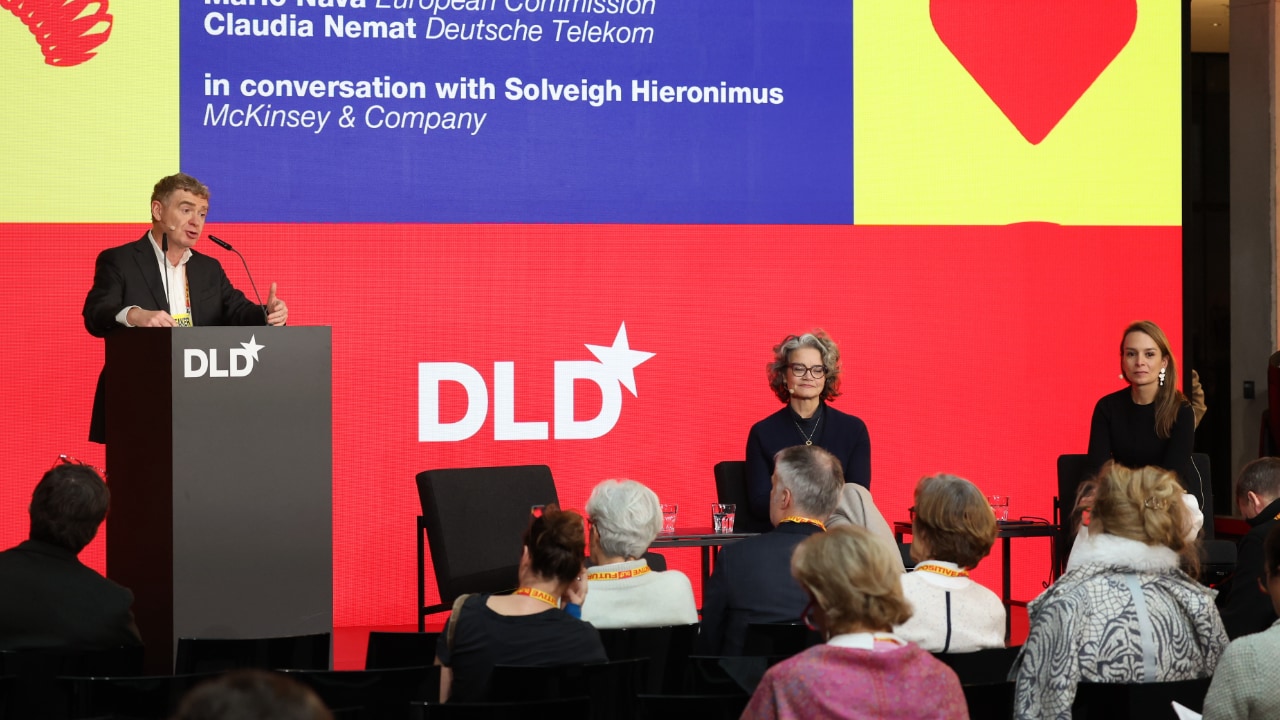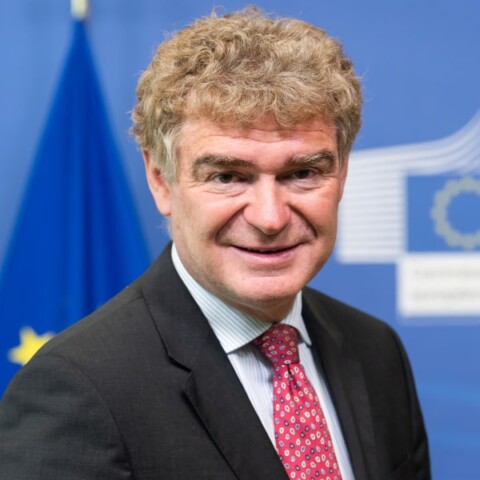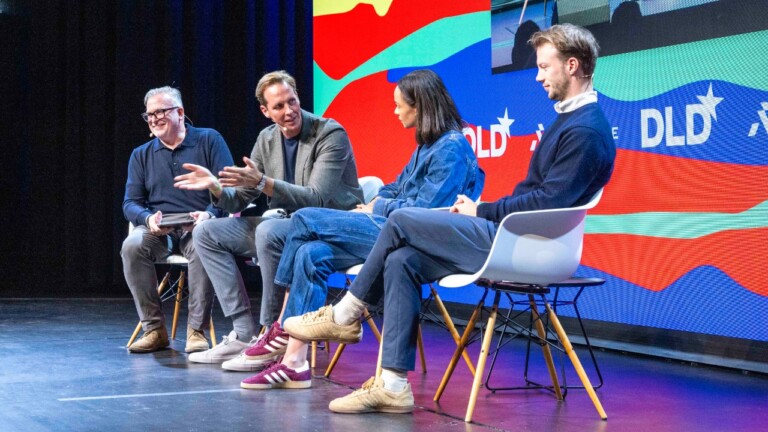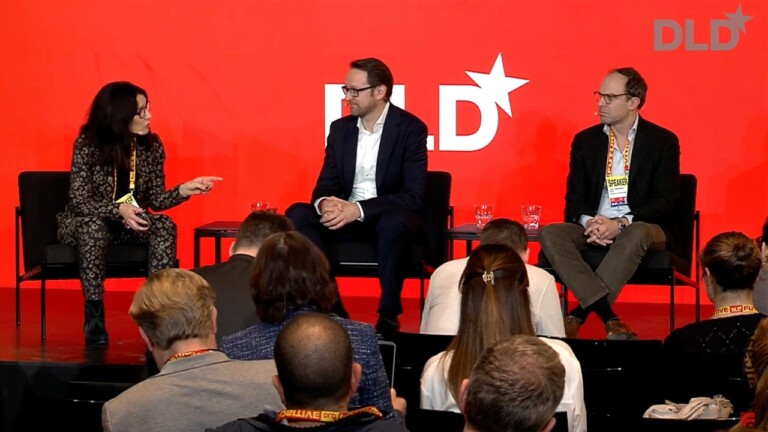The future of Europe’s competitiveness lies at the intersection of pragmatic innovation, market unity, and values-driven policy, this DLD25 panel discussion with Claudia Nemat (Deutsche Telekom) and Mario Nava (European Commission), moderated by Solveigh Hieronimus (McKinsey & Company) makes clear.
In his introductory remarks Mario Nava emphasizes that closing Europe’s innovation gap will require leveraging the single market. “Nationalism here will not work”, he says, pointing to a key insight from the recent Draghi report on EU competitiveness and the EU’s upcoming Competitiveness Compass.
To illustrate how fragmentation weakens Europe’s position in the global economy, Nava highlights the financial sector. “All of us this morning had a coffee – none of us paid with a European credit card because there is no European credit card. We all paid with an American credit card.”
Claudia Nemat calls for fundamental change in Europe’s approach to innovation. “We need to become a continent of getting things done, of pragmatism”, she declares, criticizing the local tendency to overregulate before innovation happens.
“In Europe, we have come to inventing the airbag, specifying the airbag, regulating the airbag before the car gets invented”, Nemat says. Her explanation? All too often, “we are thinking: what could eventually go wrong? And then we micromanage and detail everything.”
Nemat makes a push for AI adoption at scale, sharing how Deutsche Telekom uses artificial intelligence to fend off “50,000 attacks per minute” on their network and dramatically improve efficiency. AI “makes us faster”, she says. “It helps us save lives. And it even fosters creativity. And that’s actually what I believe you really need to get things done. So pragmatism is getting things done.”





